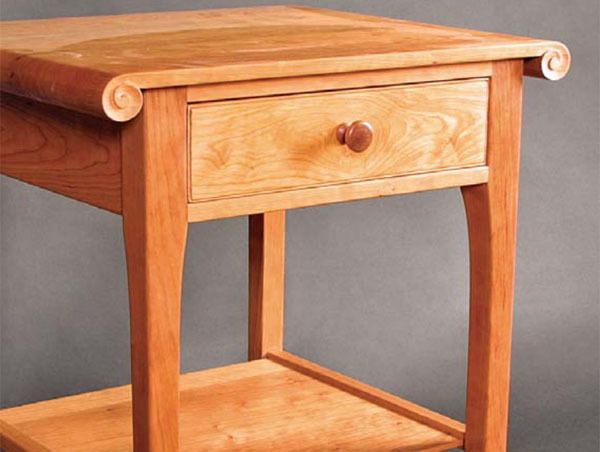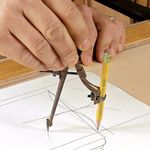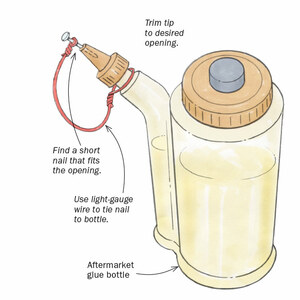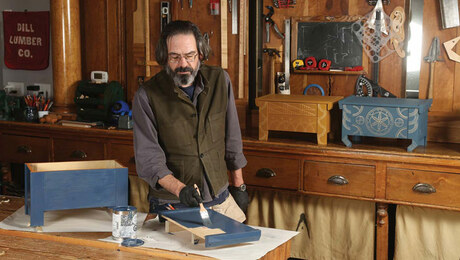Personalize Your Furniture
Three decorative carvings that are easy to do and require few tools
Synopsis: Hand carving dresses up a piece of handmade furniture and makes it truly personal. It’s also a chance to cut loose from the bonds of ruler and marking knife and make a workpiece unique. Three embellishments — diamond beading, curls, and rosettes — require few tools and are easy to do. Furniture maker Charles Shackleton demonstrates his techniques for these decorative carvings.
A trademark of my furniture is evidence of the handtool work that goes into each piece. It can be as subtle as the variations of a handplaned surface, or as deliberate as hand-carved embellishments. These details catch the eye, add a pleasing effect to the overall design, and make each piece unique.
Diamond beading, curls, and rosettes are three carvings that occur frequently in my furniture, in numerous variations. Cutting these designs mechanically would require an expensive and complex tool, but carving them by hand is done easily—even if you’re a novice carver—and requires only a modest investment in tools.
While you must work to the nearest 1 ⁄32 in. for a mortiseand-tenon, and to even tighter tolerances for a perfect dovetail, carving is your chance to cut loose from the bonds of the ruler and marking knife. You purposely are avoiding the perfect symmetry left by a machine and are seeking the unique marks left by a carver. I hope these examples will encourage you to take up carving and add an extra dimension to your furniture making. The only limit is your imagination.
A carved surface is all about texture
Many beginners try to achieve an almost flat surface, whether with multiple strokes of the carving tool or by sanding the wood. Everyone’s taste varies in how textured a carved surface should be; I think you should aim for a surface with some inconsistency but not too much. I find that running my hands over the surface is a good way to locate rough areas that need another stroke of the tool. Above all, don’t touch the carved wood with sandpaper after you put down your carving tools.
This decoration started out as a crude rendition of a berry molding. That design normally is a string of pure round beads, but my version came out in a faceted, hand-carved form. Creating this carving is an incredibly satisfying, soothing, easy, and quiet process, and it doesn’t take that long. Diamond beading can add sparkle without overwhelming a design.
I use variations of the diamond, including one that looks like a row of four-sided pyramids (see the photo on the facing page). I think a furniture maker in my shop misinterpreted the original idea, or perhaps got bored, and this new version was born. That’s how ideas come about: They evolve through mistakes, misinterpretations, experimentation, or just playing around.
From Fine Woodworking #173
For the full article, download the PDF below:
Fine Woodworking Recommended Products

Drafting Tools

Sketchup Class

Compass























Log in or create an account to post a comment.
Sign up Log in